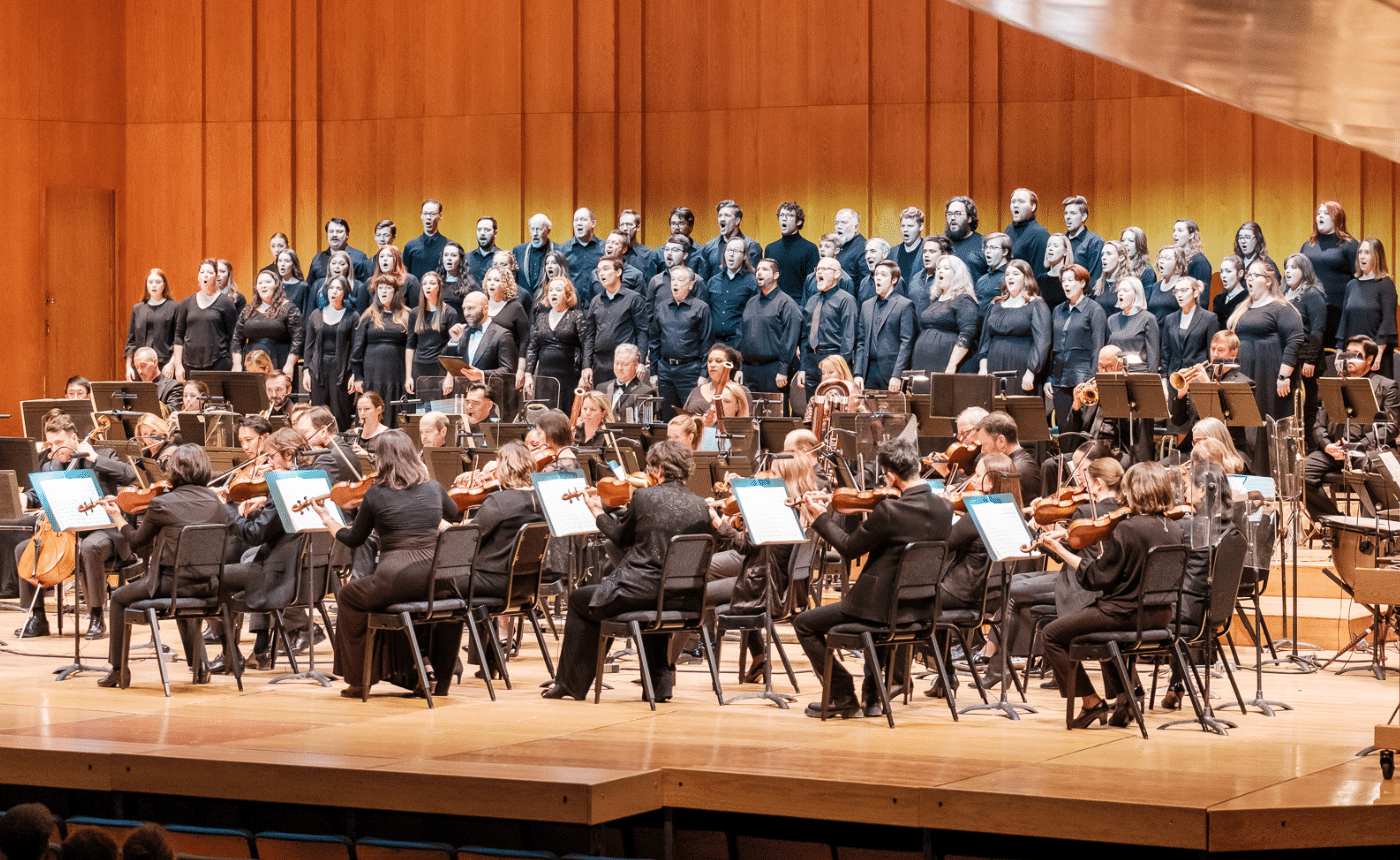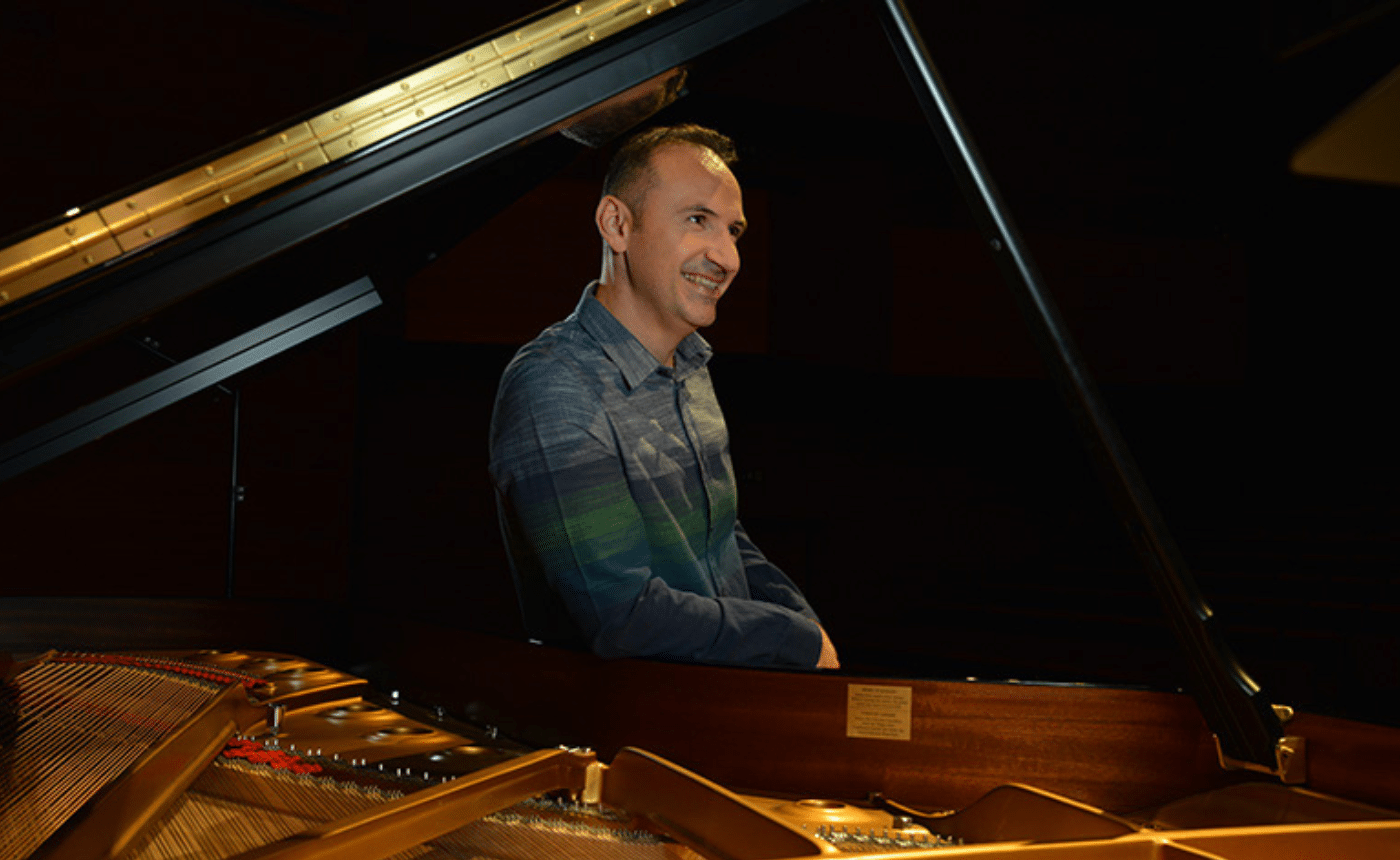BEETHOVEN: Symphony No. 7
by Jeff Counts
THE COMPOSER – LUDWIG VAN BEETHOVEN (1770-1827) – Beethoven’s compositional output is often divided by academics into distinct periods – the first years in Vienna (call this one “becoming himself”), the “Heroic” middle period (“being himself”) and of course the late period (“beholding himself”). It is no surprise that these categorizations correspond with big changes in the composer’s personal story (like the Heiligenstadt Testament of 1802 that heralded the middle period) and, though he certainly never separated his work into such academic groupings, his stormy life made it impossible for history not to. When it comes to organizing art into tidy categories, we just can’t help ourselves.

THE HISTORY – If the “Eroica” Symphony is the true centerpiece of the middle period of Beethoven, then the equally potent 7th Symphony could be remembered as its noble valediction. Or does it mark the beginning of his last, deeply introspective phase? Arguably, the year of its composition suggests “middle”, but first performance happened during the timeframe many scholars now call “late.” But this is where such arbitrary distinctions begin to break down though, isn’t it, at the margins. Beethoven wouldn’t have cared one bit anyhow. The premiere of Symphony No. 7 occurred in December of 1813, a full year after he completed it, and the benefit concert for wounded soldiers was among the most successful (and possibly oddest) of the composer’s life. On the program with the new symphony was the incredibly popular Wellington’s Victory, the most blatantly heroic piece Beethoven wrote during those middle years, and a pair of marches by Dussek and Pleyel performed by Johann Nepomuk Maelzel’s “mechanical trumpeter” invention. The symphony was well-received, but a bit lost among the technological gadgetry, the topical enthusiasm for Wellington’s Victory and the general anti-Napoleon fervor of the occasion. It is interesting to consider how the 7th Symphony would be partly guilty of the same “shadowing” effect over the more-slender 8th the following year, a clear indication that the 7th was much more than a “companion piece” to the Victory work and quickly destined for its own greatness. Another opportunity provided by history is the linking of Symphony No. 7 to the famous “Immortal Beloved” letters of 1812. The letters and symphony were written at the same time, and it seems likely that the same depth of positive emotion informed them. For a man who already knew loss in a measure beyond what he deserved, it is thrilling to view Beethoven’s exuberant, celebratory A Major Symphony as the musical translation of a very real, if fleeting, happiness.
THE WORLD – Elsewhere in 1813, war raged on both sides of the Atlantic, Pride and Prejudice was published in Britain, Simon Bolívar as named “El Liberator” in Venezuela and an outbreak of plague occurred on Malta.
THE CONNECTION – The frequently performed 7th Symphony of Beethoven was last featured on a Utah Symphony Masterworks program in February 2020. Thierry Fischer was on the podium.











